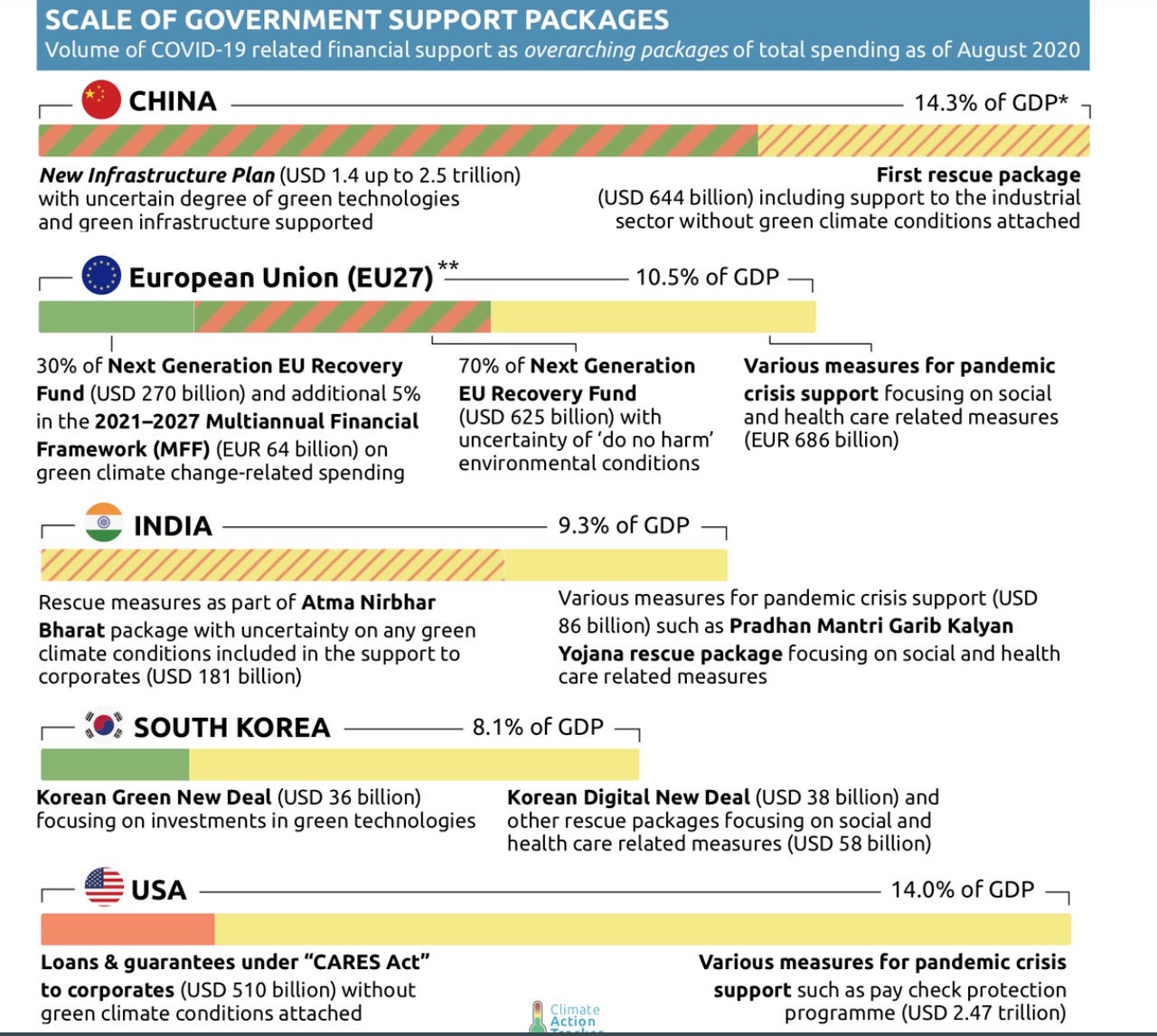
Welcome to the web version of Need to Know: Science & Insight, a newsletter on what we all Need-to-Know about climate impacts, energy transitions, the decline of nature’s support systems, living safely during a pandemic and more. It comes with an often funny personal story and some useful ideas. All in a 5 to 10 minute read in your inbox once or twice a week. It’s free. No ads. No spam.
Hello Friends,
While it’s true we’re in a state of planetary emergency, and yet hardly anyone seems to know or be bothered by it. This issue takes a brief look at why we aren’t rolling out the solutions we already have to end the emergency and how having guiding principles could help. But first; how I learned about the Earthshot Prize.
When I opened my email one afternoon there was a message from the CBC (Canada’s national public broadcaster) asking me if I’d be available for live interviews that afternoon and evening about the newly launched “Earthshot Prize”. I hesitated. It was already 2 pm and I’d never heard of the Earthshot Prize.
So I did a ‘DuckDuckGo’ search (I don't use Google) and learned about the new global prize for the environment with five US $1.3 million prizes awarded each year. One prize each for protecting and restoring nature, cleaning the air, reviving oceans, building a waste-free world or fixing the climate. And since it goes for the next 10 years, that could be 50 solutions to some of the world’s environmental problems.
It seemed like a good idea so I hit reply and said: “sure”.
About an hour later the CBC booker said they found someone else to interview. This happens all the time in television and radio. They decide early in the day what news items they’ll cover and then scramble to line up potential people to interview. I wasn’t surprised and kind of relieved since I’m usually uncomfortable being interviewed live on air. I never seem to be as articulate as I’d like.
Hours later I was still thinking about what I might have said. Turns out there are things I wanted to say, so here goes.
The Earthshot Prize brings much-needed attention to these crucial issues that we have to face and fix. But as helpful as that attention will be, the Need-to-Know is that we don't really need some new solution or some clever invention to fix or deal with those issues. We already have most of the tools needed. For example over the past few years a number of plans have been put forward on how countries can be 100 percent powered by renewable energy. For example, Mark Jacobson at Stanford University has a road map for powering 143 countries using renewable wind-water-solar energy, improved energy efficiency and energy storage by no later than 2050 with at least 80 percent completed by 2030.
Economic recovery investments need to green up
Nor is it a problem of not enough money to make this happen. Here’s a Need-to-Know based on some new research: If a fraction of the current Covid-19 economic recovery investments by various countries were shifted into low carbon investments we’d be on our way to zero-carbon world before 2050. That would keep global warming under 2 degrees C. How small a fraction of those investments? Less than three percent over the next five years according to an analysis just published last Thursday in the journal Science. That’s a very small investment to create the world we want.
That investment, or an even larger one, in a truly green economic recovery could bring our societies an enormous range of potential co-benefits and capabilities by the end of this decade. Some of these would likely be things we’ve never imagined. After all, when the first mobile phones came out in the late 1980s, no one imagined the wide-ranging capabilities and benefits of today’s smart phone.
I’m not going to go into the solutions for the other Earthshot Prize issues. The last NtK issue, “Climate and Extinction Crisis Solved”, looked at some solutions and a future issue will deal with plastic pollution. I think it is more important to look at why these solutions aren’t being implemented or at the scale we need. Hardly any of the economic recovery investments to date have gone into low-carbon solutions while a substantial amount was directed to the good old fossil fuel industry. The chart below from Climate Action Tracker shows where the money went in a few select countries. (Green is for low carbon, red is for high carbon fossil fuels; yellow is for social and health care.)

So what’s going on?
I’m sure you’ve heard the phrase ‘business as usual is not an option’. Or you heard some variation that means humanity can’t keep going the way we are. During interviews with business and political leaders, scientists, and even economists, I’ve heard it repeated endlessly over the past decade. Except for those who are in denial, everyone knows we have to make some big changes in the way we’re living. The Need-to-Know is that we either choose the changes we want or nature will impose changes we don’t want.
Meanwhile ‘business as usual’ trundles along with a bit of greening on the side. This is mainly because relatively few individuals and corporations with power and influence are doing very well by keeping things the way are. They continue to resist a shift to a greener, safer pathway even though the ‘business as usual’ path has produced a “state of planetary emergency” that even many country leaders now acknowledge. Doubt and fear are the main tools being employed to prevent us from moving on to that safer, saner pathway.
Nasty or nice, it’s up to us
Change is hard to be sure, but change is coming. If we don’t choose the changes we want, we’ll get the ones we don’t want. That’s what I would have told the CBC interviewer. And they would have likely asked: “Ok, but what can we do about it?”
In my imagination I would have prepared a list beforehand and said:
1. We should accept that changes in the way we live are inevitable. These changes could make our lives much better or much worse. It’s up to us.
2. We should remind friends and family that we already have good solutions. But we have to use them or we’ll get changes we won’t like.
3. We should incorporate “green” principles to help guide us.
Guiding principles for the world we want
Guiding principles are a lighthouse in the fog of fear and chaos that can guide us along a path to a future we want. Having some guiding principles in my life has been extremely helpful and relieved me of a lot of stress. It’s easier to make big decisions when you know exactly where you want to go. Here are a few guiding principles I think are pretty universal:
Things don’t bring us joy, happiness, love or contentment. Only relationships do.
Respect all things both animate and inanimate.
There is no such thing as cheap. All material things have costs and consequences.
Everything is connected. No one nor any thing is truly independent.
It really is a small world. There is no “away”.
Less can often be more and better
Reliable and repairable is better than new or complex
I’m sure some of you have other guiding principles of your own. Feel free to share them in the comments section.
Until next time, stay safe.
Stephen



